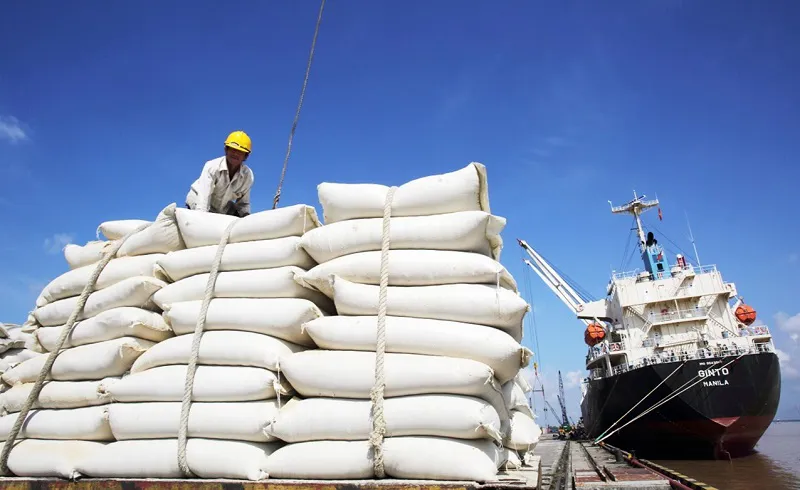Vietnam gov’t persists in dominating vital economic sectors
The government vows to hold between 51% and 65% stakes in rice trading and petroleum import.
The government of Vietnam will continue holding majority stakes in sectors that contribute to ensuring national socio-economic stability.
| Vietnam will hold controling stakes in rice export enterprises. Photo: Ha An/Lao Dong |
The government will hold stakes of more than 50% in three groups of sectors that have been classified for restructuring in 2021-2025 under the prime minister’s draft Decision.
In the list by the Ministry of Planning and Investment that is gathering public comments, the government will hold more than 50% to less than 65% stakes; more than 65% stakes; and wholly-owned subsidiaries in the following sectors.
The enterprises to be wholly controlled by the State are from 12 sectors namely defence and security service mapping; production and trade of industrial explosives and provision of blasting services; national load dispatch and electricity transmission; air traffic service and aviation notifications and alert services; lottery; money printing, production of gold bullion and gold souvenirs, among others.
Five sectors where the government will hold more than 65% stakes include management of and operation of airport terminals, airports and airfield operation services; management and operation of large-scale seaports; aeronautical meteorological and surveillance services; big extractive projects; oil and gas exploration and exploitation.
The government will maintain between more than 50% and less than 65% stakes in nine sectors that include safe water supply and drainage; air transportation; banking; and enterprises holding the market share of more than 30% or those essential to the economy like rice export and petroleum import.
The classification will be crucial for the privatization and divestment of state capital at state-owned enterprises (SOEs).
Regarding rice export, Vietnam shipped 6.37 million tons in 2019, up 4.2% on-year, according to the General Department of Vietnam Customs. The country might overtake Thailand to become the world’s largest rice exporter in 2020.
In 2019, Vietnam imported 9.79 million tons of petroleum products and exported 3.1 million tons. Vietnam National Petroleum Group (Petrolimex) currently holds a 50% market share in the country’s petroleum distribution sector with a retail network of more than 2,400 filling stations nationwide.












